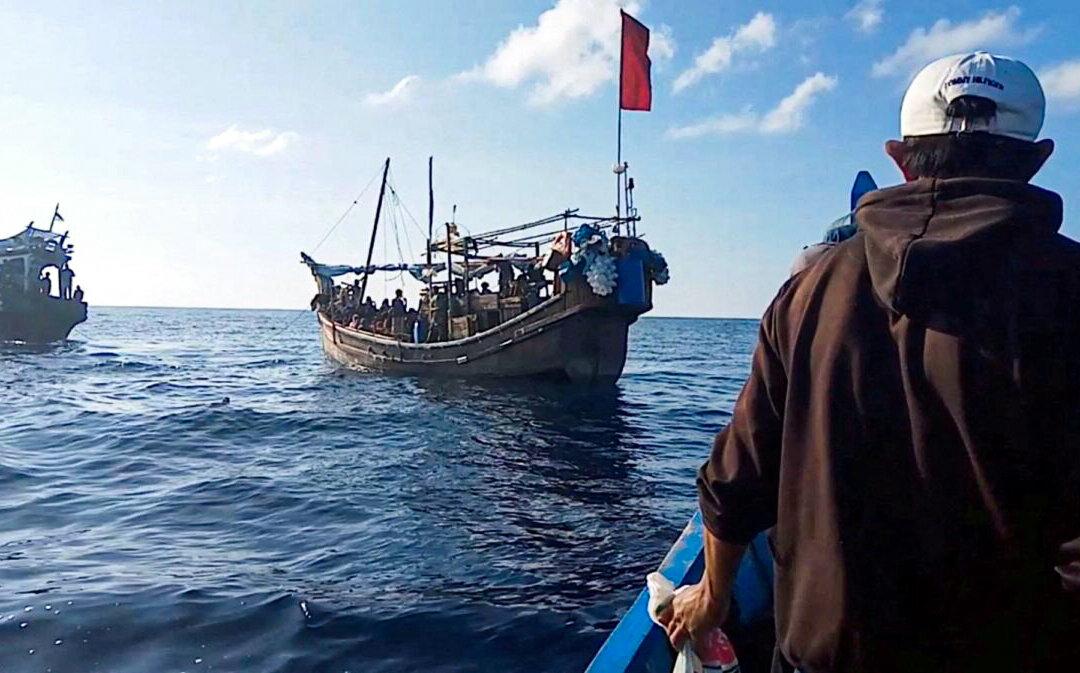The Indonesian government has allowed a stranded boat carrying 120 Rohingya refugees near Aceh province to dock, the authorities said on Wednesday, relenting under pressure from rights groups.
The boat was first sighted in waters off the coast of Bireuen on Dec. 26. The boat was leaking and damaged, with dozens of Rohingya refugees onboard, including women and children, the United Nations High Commissioner for Refugees (UNHCR) said in a statement.





